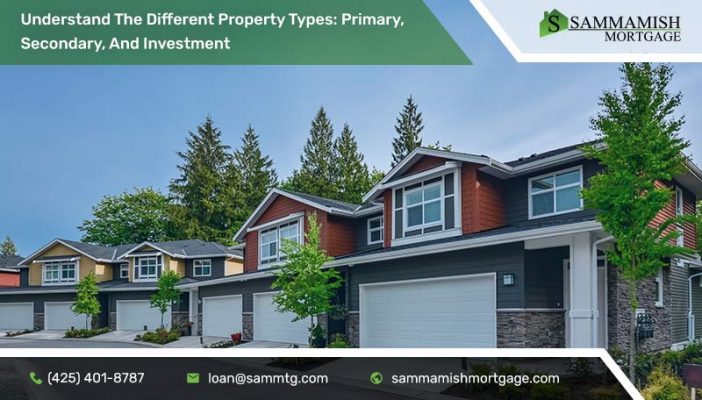No Obligation and transparency 24/7. Instantly compare live rates and costs from our network of lenders across the country. Real-time accurate rates and closing costs for a variety of loan programs custom to your specific situation.

Are you getting ready to buy a house? You’ll need to disclose what purpose you’re buying it for, whether as a primary home, a secondary home, or an investment property. Here’s why.
How you classify the use of your home can have an impact on the interest rate and ultimate cost of the mortgage you obtain. However, misrepresenting what you plan on doing with the home might seem like a fib, but as tempting as it may be, that small fib could carry significant ramifications and put you in hot water and it’s something that every lender out there will scrutinize. Mortgage occupancy fraud has long been a hot-button issue plaguing the mortgage world. Find out below how to classify your prospective property purchase.
When you apply for a mortgage, the purpose for which you are buying the home will affect the interest rate that you qualify for and ultimately the cost of the mortgage. If you are purchasing a second home/vacation home or an investment property, your mortgage will fall under a different pricing category than you would if you were buying a primary residence.
This is your main home and the one that you live in for the majority of each year. A primary residence can be a single family home, a condo, 2-4 unit home or even a houseboat. Mortgage rates and interest rates are lowest for primary homes compared to secondary homes or investment properties.
You’ll have to attest that the home you are buying is a property you intend to occupy as your primary residence for at least the following 12 months. To qualify, this means you will need to show that:
You can deduct a large portion of mortgage interest in home loans for primary residences, as well as private mortgage insurance (PMI) payments for homes purchased after 2006. You’ll have to use itemized deductions instead of claiming the standard deduction on your tax return.
Other tax deductions you can file for your primary or second home include:
Even if you rent your second home/vacation home occasionally, such as for key weekends for part of the year, as long as it’s less than 14 days a month it’s still considered a vacation residence. More than that, and you’re considered to be using the second home as an investment property for a majority of a season or another uninterrupted part of the year.
You’ll need to talk to an accountant about how to divide expenses and tax deductions and account for rental income under a rental property designation. Be aware that if you plan on using a property as any sort of investment, you’ll need to wait at least six months after closing to avoid having it classified as an investment property for the purposes of your mortgage and having higher mortgage and interest rates applied.
You’ll pay higher interest rates on real estate you buy as a second home or an investment property. Based on the current rate market, you can expect the interest rate to be around a quarter percent higher for a second home, and about a half percent higher for an investment property compared to rates offered for primary residences. This is because lenders know that when someone’s financial situation turns south, they are more likely to bail on a second home or investment property versus their primary residence.
Investment properties are also considered to be a higher risk for lenders (more so than even second homes). The government sponsored entities and primary purchasers of conventional mortgages, Fannie Mae and Freddie Mac limit the number (or total dollar amount equaling a percentage of their budget) of high-risk mortgages that each lender is allowed to sell to them.
One thing that you can do to improve the pricing that would apply when you purchase an investment property or second home is to increase your down payment. The higher your down payment, the lower the level of perceived risk there is for your purchase. Loans with lower loan-to-values typically carry lower interest rates than those with higher ratios.
A multi-unit property can be a solid investment strategy. You can classify the residence as either an investment property or a primary residence. As long as you occupy one of the units the home would be classified as your primary residence even if you rent out the other units.
Occupation is a great way to strategically purchase a multi-unit building with rental units that will likely cover a majority or all of your mortgage payment allowing you to live rent-free, while also qualifying for interest rates that are applicable to primary residences.
This is known as house hacking. As long as you can keep tenants in place, you could even turn a nice profit on your building. Eventually, if you don’t want to make that residence a primary one, you can shift the building over to investment-based property as long as you personally lived there for 12 or more months directly after the purchase.
We have a $0 lender fees and $0 commission policy. At Sammamish Mortgage, our Loan Officers are not paid commissions. We strongly believe in allowing our Loan Officers to be advisors and educators, versus just salespeople.
By removing commissions and compensating our Loan Officers with salaries, we’ve effectively removed the pressure to close and allowed our Loan Officers to do what they do best: be your advocate!
Sammamish Mortgage has been in business since 1992, and has assisted 1,000’s of homebuyers in the Pacific Northwest. If you are looking for mortgage programs in Washington State, Oregon, Idaho or Colorado let Sammamish Mortgage help you get pre-approved.
Contact a loan officer if you have any mortgage-related questions or concerns. If you are ready to move forward, you can view rates, obtain a customized instant rate quote, or apply instantly directly from our website.


Whether you’re buying a home or ready to refinance, our professionals can help.
{hours_open} - {hours_closed} Pacific
No Obligation and transparency 24/7. Instantly compare live rates and costs from our network of lenders across the country. Real-time accurate rates and closing costs for a variety of loan programs custom to your specific situation.